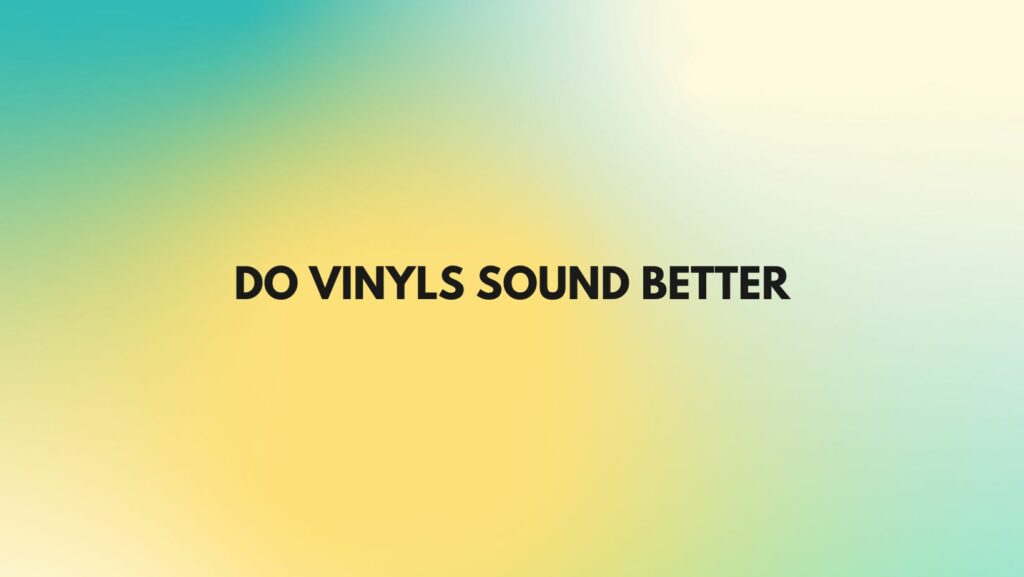In an era dominated by digital convenience, vinyl records have experienced a remarkable resurgence, captivating audiophiles with their warm, analog sound. The debate over whether vinyl truly offers superior sound quality compared to digital formats is a contentious one. In this article, we’ll explore the nuances of the vinyl listening experience, examining the factors that contribute to its perceived superiority and separating myth from reality.
1. Analog Warmth and Dynamic Range:
Proponents of vinyl often tout the analog warmth and dynamic range that vinyl records offer. Vinyl is an analog format, capturing the continuous waveforms of music, while digital formats represent sound using discrete samples. Some argue that the analog nature of vinyl produces a more authentic and natural sound, particularly in the midrange frequencies, contributing to a unique listening experience.
2. Vinyl’s Unique Character:
Vinyl records introduce a tactile and tangible element to the listening experience that digital formats lack. The ritual of handling and placing a vinyl record on a turntable adds a sensory dimension to the enjoyment of music. The imperfections, such as the subtle pops and crackles, can be perceived by some as part of the charm, contributing to the unique character of vinyl.
3. Vinyl Mastering and Production:
The mastering process for vinyl involves considerations that differ from digital formats. Engineers often make adjustments to accommodate the physical limitations of the vinyl medium, such as the avoidance of extreme bass frequencies and high-end frequencies. This tailored approach to mastering contributes to the perception of vinyl records as finely crafted, individualized pieces of art.
4. Subjectivity of Perception:
Sound quality is inherently subjective, varying from person to person based on individual preferences, equipment, and listening environments. Some listeners genuinely prefer the warmer, more textured sound of vinyl, while others may find digital formats more accurate and convenient. The subjective nature of the listening experience plays a significant role in the ongoing debate over whether vinyl truly sounds “better.”
5. Vinyl’s Limitations:
While vinyl offers a unique and nostalgic listening experience, it is not without limitations. Vinyl records are susceptible to wear and tear, surface noise, and environmental factors such as temperature and humidity. Additionally, the playback quality is influenced by the condition of the turntable, stylus, and overall maintenance of the vinyl setup.
6. High-Quality Digital Formats:
Advancements in digital audio technology have led to the development of high-resolution audio formats, offering audio quality that rivals or exceeds that of vinyl. High-quality digital recordings, played through well-designed digital-to-analog converters and audio systems, can provide a detailed and nuanced listening experience that challenges the perception of vinyl as the pinnacle of audio fidelity.
Conclusion:
The question of whether vinyl sounds better is a complex and subjective one. While vinyl enthusiasts appreciate the analog warmth, dynamic range, and tangible nature of the format, high-quality digital audio has narrowed the gap. The vinyl experience is as much about the ritual and aesthetic appeal as it is about sound quality. Ultimately, the choice between vinyl and digital comes down to personal preference, with each offering a distinct way to connect with the artistry of music. Whether spinning vinyl on a turntable or streaming a high-resolution digital file, the pursuit of superior sound is a journey that continues to evolve in the ever-changing landscape of audio consumption.

